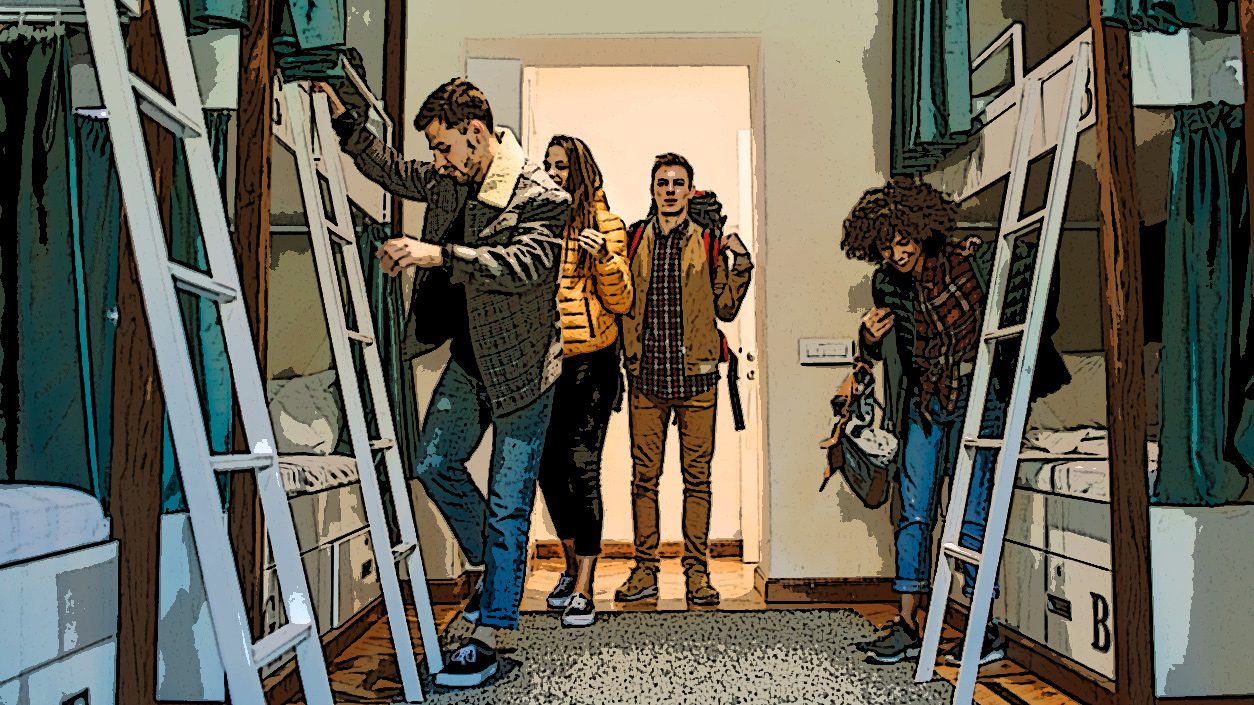
vgajic/iStock
Finding affordable housing in a decent neighborhood in the priciest cities these days on an entry-level or freelance salary seems like a joke. That’s probably why some folks are ponying up $1,000 to $1,350 a month for the privilege of sleeping in a bunk bed in a room full of strangers of both genders.
PodShare, a hostel/co-living space, caters to a combination of budget travelers and broke creative and startup types looking for accommodations for a night, week, month, or more in Los Angeles and for longer stays in San Francisco. Similar to hostels or dormitories, guests sleep in shared rooms and have access to communal kitchens, workspaces, TV rooms, and backyards or sun decks in some cases. It’s like MTV’s “The Real World,” without the cameras.
But while recent college grads may embrace the minimalist lifestyle, free snacks, and sharing a bedroom with strange men and women, it’s not ideal for those who prefer at least a modicum of privacy, have a lot of stuff—or simply want to sleep in a grown-up bed. Still, without the funds to afford those things, they may have no choice.
“A thousand dollars [a month] sounds absurd to the Midwest. But you won’t find [another] place in our neighborhoods for $1,000, including all amenities,” says PodShare founder Elvina Beck. “What you lose in privacy, you gain in a neighborhood with tons of opportunities for jobs and entertainment. [Plus,] it’s 50% cheaper than anything around us.”
Beck launched the co-living company in 2012. It’s since grown to five locations in Los Angeles and one in San Francisco with another on the way. There are plans to open another space in Santa Monica, CA.
Guests stay in “pods,” as they’re called, which are wooden bunk beds that come with flat-screen TVs, power outlets, and night lights. They pay about $50 a night, $280 a week, or $1,000 a month in Los Angeles, or $1,350 a month in San Francisco.
Bed linens, towels, and toiletries are provided along with Wi-Fi access. Guests can cook meals in the kitchen, use the communal bicycles and computers, and hang out in the study room, TV room, and other spaces. Some locations have backyards, others have sun decks. Belongings are stored in lockers, shared closets, or underneath the pods. Laundry facilities are available for $5 a load.
PodShare is popular with travelers and creative types who are new to the cities and on tight budgets, says Beck. It provides a built-in network of potential friends and plenty of opportunities to socialize. In addition, guests don’t have to worry about a security deposit and can pay by the day, week, or month. That may be why it’s appealing to older millennials.
“Today, housing is so expensive that people are not moving out,” says Beck. She has several folks who have been living in her locations for more than a year. “We give discounts for long-term stays, and we’re happy to take locals.”
The typical guest is between 27 and 35, split fairly evenly between men and women, according to the co-living company. About half of them stay at PodShare for over a month. These folks tend to be new to Los Angeles and San Francisco and on limited budgets, such as actors, musicians, and those hoping to found startups. They typically stay at PodShare until they save up for an apartment; sometimes their bunkmates become their future roommates.
“For [$1,000 to] $1,350 a month, you’re able to live in the most desirable neighborhood in one of the most expensive cities in the country. This is amazing for people who are either looking for built-in friends and built-in networks,” says Ali Wolf, an economist and millennial expert at Meyers Research, a building consultancy. “And this is really cheap for San Francisco.”
But there are some big trade-offs.
Guests aren’t allowed to cover the front of their pods, ensuring zero privacy—and meaning there’s no way to shield themselves from, say, the prying eyes of the guest in the bunk a few feet away. The company found that keeping everything in the open was a deterrent to illegal or inappropriate behavior.
Visitors aren’t allowed without a purchased pass, and sleepovers are prohibited, so goodbye dating life. And no drugs, excessive inebriation, or public nudity are allowed. Problematic guests are asked to leave.
Quiet hours from 10 p.m. to 10 a.m. are strictly enforced, so no loud music or even late-night conversations are permitted. But that doesn’t mean it’s complete silence.
“For the lower nightly cost, you are giving up implicit personal and property safety, privacy, and could become victim to your roommates’ alarm clocks,” says Wolf. “If you’re a sensitive sleeper and you like the lights off and you don’t like noise and the person in the bunk above you wants to go on a run at 5:30 [a.m.], that’s really inconvenient.”
The post Cheap Rentals Do Exist in L.A. and S.F.—If You’ll Sleep in a Bunk Bed and Give Up All Privacy appeared first on Real Estate News & Insights | realtor.com®.
via Cheap Rentals Do Exist in L.A. and S.F.—If You’ll Sleep in a Bunk Bed and Give Up All Privacy

No comments:
Post a Comment